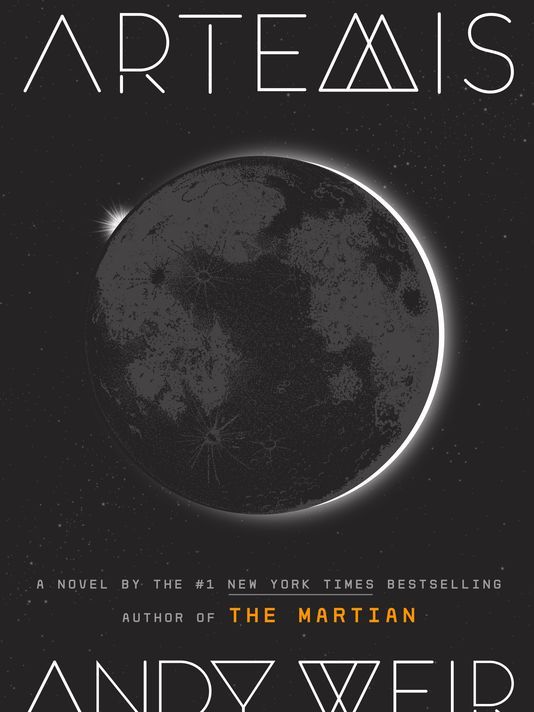Moon Lite

It’s late in this century, up on the moon, and Jasmine Bashara, nicknamed Jazz, is a struggling 26-year-old Saudi citizen who has lived in Artemis, a lunar city of 2,000 diverse earthlings, since she was 6. Poor, irreligious and sassy, she could make Amy Schumer blush.
Being an independent delivery person/petty smuggler isn’t working out. She lives in a coffin-like cubical appointed only with a bed and a shelf, and she mostly eats “gunk,” the dried algae that is the standard fare of the moon’s "little people" (who presumably turn green after a hearty helping). Her main squeeze, Tyler, was stolen away by another man, an Israeli no less.
Jazz longs to be free of her hardscrabble existence. One of the many things that apparently hasn’t changed in more than half a century is income inequality. She describes her lunar socio-economic status as working class, her "hood" in scatological terms, and her "residence" this way: "My coffin isn't going to be featured in Better Homes and Moonscapes anytime soon, but it's all I can afford."
Andy Weir is back. His second sci-fi novel, "Artemis," is an action-packed techno-thriller of the first order. His first was "The Martian," a best seller that launched the movie starring Matt Damon.
Being up to speed on high-school science helps here, although the reader also can skim all that high-tech jazz and simply follow the topsy-turvy lunar plot.
The book opens with Jazz failing — in spectacular fashion — her test to join the EVA Guild (acronyms like EVA often are not explained), which would have allowed her to lead lucrative tourist forays onto the moonscape. This setback sets the stage for a dubious life decision that propels the low-gravity plot into motion. For $1 million slugs (the local currency) she agrees to help a businessman sabotage a rival. Needless to say, things don’t go as planned.
When Jazz isn’t entertaining the reader with her snappy commentary (“I threw off my clothes faster than a drunk prom date”), she is involved in enough derring-do to make James Bond jealous. The pages fly by, taking the reader into orbit some 238,900 miles above this vale of tears — arguably a good thing given current events down below.
But Weir’s book fails to fully beam his audience up. A little futuristic context would be welcome. How has the world changed in 50-plus years, as in climate change, for example? How about geopolitics: There are Israelis and Arabs coexisting on the moon, but not a line about how they are getting along on Earth.
And as for pop culture, virtually all the references are totally 20th century, whether Star Trek (century-old reruns?) or Eli Wallach (how about Vin Diesel?) or Scooby-Doo (the pooch just isn’t that lovable).
The reader doesn’t even learn if space colonization is a one-off development or if more cities are planned on the moon or elsewhere. Like the domed structures of Artemis, the novel is hermetically sealed from the world outside.
Still, by concocting cliff-hanging action worthy of Indiana Jones, Weir has provided the perfect vehicle for humans who want to escape, if only for a time, the severe gravity of planet Earth.